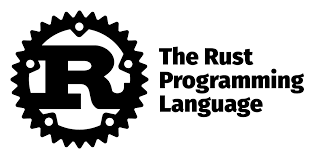
Rust Programming Language: A Comprehensive Overview
Introduction to Rust:
Rust is a systems programming language that focuses on safety, performance, and concurrency. It was initially developed by Mozilla Research and later sponsored by the Mozilla Foundation. Rust provides modern programming language features while guaranteeing memory safety without sacrificing performance. It aims to be a viable alternative to C and C++ for systems programming tasks.
History of Rust:
- 2006: Work on Rust began as a personal project by Mozilla employee Graydon Hoare.
- 2010: Mozilla officially announced the Rust project.
- 2012: The first stable version of Rust, Rust 1.0, was released to the public.
- 2015: Rust was declared the “Most Loved Programming Language” in Stack Overflow’s Developer Survey.
- 2016: The Rust community established the Rust Foundation to steward the language’s development independently of any single corporate entity.
- 2021: Rust 1.55 was released, bringing new features, optimizations, and improvements to the language.
Uses of Rust:
- Systems Programming: Rust is widely used for systems programming tasks, including operating systems, device drivers, game engines, and embedded systems development.
- Web Development: Rust is increasingly being used in web development, particularly for server-side programming, thanks to frameworks like Actix and Rocket.
- Command-line Tools: Rust’s performance and safety features make it an excellent choice for building command-line tools and utilities.
- Game Development: Rust is gaining popularity in the gaming industry for developing game engines, tools, and libraries due to its performance and safety guarantees.
- Networking and Distributed Systems: Rust’s concurrency features make it well-suited for developing networking protocols, distributed systems, and high-performance server applications.
Key Features of Rust:
- Memory Safety: Rust’s ownership model and borrow checker ensure memory safety without the need for a garbage collector, preventing common memory-related bugs like null pointer dereferences and buffer overflows.
- Concurrency: Rust provides powerful concurrency primitives like threads, async/await, and channels, making it easier to write safe and concurrent code.
- Performance: Rust offers zero-cost abstractions and fine-grained control over memory layout, enabling high-performance code without sacrificing safety.
- Expressive Syntax: Rust’s syntax is designed to be modern, expressive, and ergonomic, with features like pattern matching, closures, and type inference.
- Cargo Package Manager: Rust comes with Cargo, a powerful package manager and build system that simplifies dependency management, testing, and building projects.
- Community: Rust has a vibrant and active community that contributes to the language’s development, creates libraries and tools, and provides support and resources for Rust developers.
Conclusion:
Rust has emerged as a modern and powerful programming language for systems programming, offering a unique combination of safety, performance, and concurrency. With its growing ecosystem of libraries, frameworks, and tools, Rust is increasingly being adopted for a wide range of applications, from low-level system programming to web development and beyond. As it continues to evolve and mature, Rust is poised to become a leading choice for developers seeking a safe, efficient, and productive programming language.





